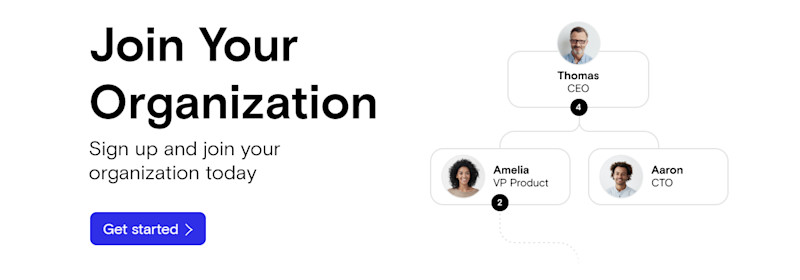Table of contents
A Chief Executive Officer (CEO) is the highest ranking executive in a company. All the other C-level executives answer to them.
What are their responsibilities?
A CEO can have a wide array of different duties depending on the company, but their key duties are similar across the board. A CEO is in charge of making big decisions, managing the overall operations and resources of a company, acting as the main point of communication between the board of directors and corporate operations and being the public face of the company. In the case of most companies, all of these responsibilities work towards maximizing profits, but for some, like nonprofit organizations (NPOs), this means working towards meeting philanthropic and/or humanitarian goals. The CEO is also required to hire and fire the other C-level executives, and usually sets the outline for their specific duties.
Serving as the face of the company, the CEO is required to lead by example, along with setting internal conduct policies, behavior, values, and promoting the desired type of culture within a company. Even below the C-suite, employees will be looking to the CEO to determine the company’s culture. For example, the way a CEO treats failures and awards successes gives employees an indication of how much risk they can take, and the way a CEO reacts to events shows employees what is acceptable within the company, and what is not.
What skills & education should a CEO have?
Although the specific skills required for a CEO can vary from company to company, most are required to be strong leaders, with excellent interpersonal skills and good analytical and managerial skills.
Interpersonal skills are essential in order to unite and motivate the other senior leaders of the company towards a common goal, analytical skills ensure that every strategic goal for the company is both measurable and attainable, while management skills promote a culture of growth and development in which employees are empowered to rise through the ranks within a company.
Although there is no single qualification that is a prerequisite for the position, most CEOs have a bachelor's level degree, and many will have a masters level degree, with an MBA being most common. There are a few exceptions however, like Bill Gates and Mike Zuckerberg, who are both college dropouts. Many would argue that it is more important to be able to lead the company, maximize profits and manage people beneath you well, than it is to have completed a certain major.
If you're thinking about your own path to the CEO spot, it's probably a good idea to see where you stand at your job today and how you might progress. One easy way to do that is to join your company's public org chart.
What is the difference between:
CEO vs Chairperson of the Board
Although theoretically in the US, a Chairperson of the Board representing the company’s shareholders could also be the company’s CEO, this is rarely the case because it can cause conflicts of interest, as the Board is responsible for evaluating the performance of C-level executives, including the CEO. In the UK, the Corporate Governance Code explicitly prohibits a CEO from being the Chairperson. Many other countries have similar rules.
CEO vs CFO
The Chief Financial Officer (“CFO”) is responsible for the company's finances, including profit, financial planning and management of financial risks, and they answer to the CEO. Since the CEO is usually the one to allocate the company’s funds, many small companies, especially startups, forgo having a CFO, and the CEO takes on these responsibilities.
CEO vs President
In general, the CEO is considered the highest ranking officer in a company, and the president is second in charge. In the corporate world, the president is often also the Chief Operating Officer (COO). The COO is responsible for day-to-day operations and has vice presidents for different parts of the company reporting to them to assist with this. Unlike a CEO, the term president is mostly used to refer to the person in charge of a specific part of the company, rather than all of it. These roles might be done by the same person in a small business, however.
How Much Are CEOs Paid?
CEO salaries vary between businesses and depend on the company’s location, size and the number of people directly reporting to the CEO, among other factors. According to Salary.com, the median salary for this position in San Francisco, California (one of the largest business hubs in the US) is $1,011,710, while the same position in Harlingen, Texas (which has the lowest cost of living in the US) is paid a median salary of $707,800.
Who Are Some Famous CEOs?
The CEO is in most cases, the most recognizable person in a company. According to a list assembled by CEOWORLD magazine, the following people were the top 10 most influential CEOs in 2019:
- C. Douglas McMillon, US (Walmart)
- Ben van Beurden, Netherlands (Royal Dutch Shell)
- Lakshmi Niwas Mittal, Luxembourg (ArcelorMittal)
- Amin H. Nasser, Saudi Arabia (Saudi Aramco)
- Bob Dudley, UK (BP)
- Darren Woods, US (Exxon Mobil)
- Herbert Diess, Germany (Volkswagen AG)
- Akio Toyoda, Japan (Toyota Motor)
- Timothy D. Cook, US (Apple)
- Warren E. Buffett, US (Berkshire Hathaway)
The richest person in the world and founder, owner and CEO of Amazon, Jeff Bezos, has ranked 11th according to this list, while Mark Zuckerberg, CEO of Facebook, did not rank at all among the 121 people on the list.


The ORG helps
you hire great
candidates
Free to use – try today
